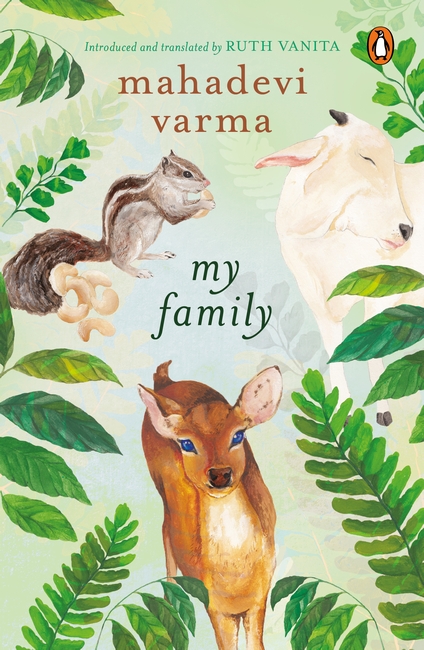
A classic of unmatched lyrical beauty by the ‘modern Mira’
For Mahadevi Varma, her animal companions were her chosen family. This family comes alive in Mahadevi’s lyrical prose, depicting the animals’ relationships with her, each other, and the human inhabitants of her home and her school. Rescued peacocks, squirrels, dogs, rabbits, and deer romp through these pages, each an unforgettable individual of many moods. Charming hand-drawn illustrations complement the delightful writing. Together, these portraits reveal an urban modernity permeated by nature.
In this first-ever translation of a little-known classic, Ruth Vanita brilliantly captures Mahadevi’s empathetic imagination, sparkling wit, and intense observation of detail. In her introduction, Vanita illuminates Mahadevi’s feminist and literary legacy, her powerful indictment of human cruelty, and how her prose sprang from the fount of her feelings for animals.
FROM THE BOOK
‘As [Neelkanth the peacock] stepped forward and backward, left and right, he would pause at some invisible point where rhythms meet . . . I cannot say how Neelkanth came to know that I liked his dancing very much, but one day, as soon as I approached the aviary, he suddenly descended from his swing and, spreading out the circular rainbow umbrella of his feathers, he stood in a dance pose.’
* * *
‘Animals recognize humans’ unpretentious affection but not high and low social status. I absorbed this truth from Sona [the doe] by osmosis. What had Sona to do with the grave and solemn Guru-ji [Mahadevi] of the girl students? . . . If Sona felt it necessary to jump over my head to express her affection, she would do so. It was impossible for her to be impressed by my status or circumstances.’
Imprint: India Hamish Hamilton
Published: Aug/2021
ISBN: 9780670095902
Length : 168 Pages
MRP : ₹399.00
August is pretty much acknowledged as the last month of summer all along the northern hemisphere. It inherited its name from the Roman emperor Augustus Caesar and literally means ‘venerable, majestic, magnificent, noble’. When you think about it, august is rather grand, marked by the Olympics this year and all the books we’re releasing this […]
